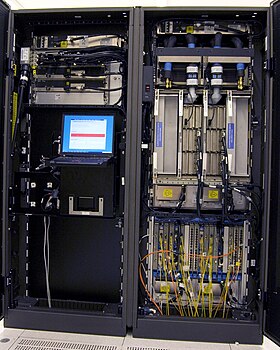Classification based on Size - JSS2 Computer Studies Lesson Note
Computers come in various sizes to cater to different needs, and we can classify them based on their size into four main categories: supercomputers, mainframe computers, minicomputers, and microcomputers.
1. Supercomputers: Supercomputers are the giants of the computer world. They are massive machines built to process a tremendous amount of data at incredibly high speeds. Supercomputers are used for complex calculations, simulations, and tasks that require immense computational power. Examples of supercomputers include those used in scientific research, weather forecasting, and nuclear simulations.
2. Mainframe Computers: Mainframe computers are like the powerhouses of large-scale data processing. They are robust machines designed to handle vast amounts of information and support multiple users simultaneously. Mainframes are commonly used by big organizations, banks, and government agencies for tasks such as large-scale data processing, financial transactions, and database management.

Image from wikipedia: inside an IBM mainframe
3. Minicomputers: Minicomputers are smaller than mainframes but still pack a decent punch in terms of processing power. They are suitable for medium-sized businesses and organizations that need more computing capabilities than microcomputers can offer but don't require the extensive resources of mainframes. Minicomputers find applications in tasks like scientific research, engineering simulations, and process control.

Image from wikipedia: Workstations
4. Microcomputers: Microcomputers are what most people think of when they hear the word "computer." These are the everyday machines like personal computers (PCs), laptops, and even some tablets and smartphones. Microcomputers are compact and designed for individual use. They are versatile and can be used for a wide range of tasks, including word processing, gaming, internet browsing, and more.